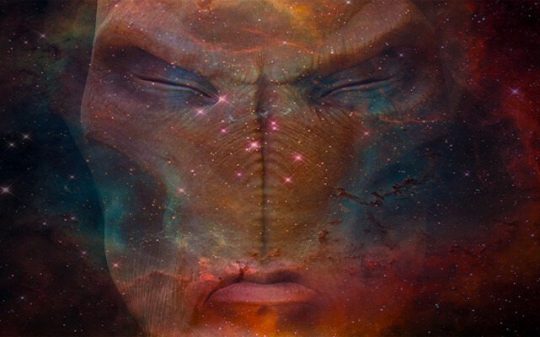Many attempts have been done throughout the years to communicate with extraterrestrial beings residing in the universe, but to no avail. A recent study has proposed that they may all be dead, so we should focus on preserving life on Earth rather than trying to reach them.
There’s no doubt about the vastness of the universe we live in. Considering this colossal expanse, it’s logical to assume that other intelligent lifeforms reside within. Our technological means have evolved, our understanding of space has boomed over the years, but we haven’t yet found any trace of advanced extraterrestrials. When it comes to why we haven’t achieved this yet, there are countless speculations providing an explanation.
First of all, let’s see how far the universe stretches. According to data gathered throughout the years, there should be billions of other galaxies beside the Milky Way, each of them containing billions of stars, in turn orbited by billions of planets. This only implies that chances for intelligent life to be found somewhere else other than Earth are extremely high. But why haven’t we managed such a feat yet?
According to scientists, other galaxies are out of reach for us. Even if we learn how to travel at the speed of light, time would be an issue whenever considering venturing outside of the Milky Way. So, instead of focusing on finding intelligent life in the entire cosmos, we should only search the galaxy that we find ourselves into. What are the chances of success you might ask?
There are around 100 billion planets in the Milky Way alone, and although just a portion of them could sustain life, there are still millions of planets left with extraterrestrial life, and hundreds of thousands that should be inhabited by intelligent and advanced species. So why haven’t we discovered them so far if they reside in the same galaxy as we do?
The Fermi’s paradox tries to elucidate this mystery. It represents an apparent contradiction between the estimated possibilities (which clearly give high chances for ET life) and the lack of evidence of alien life.
[iframe id=”https://www.youtube.com/embed/sNhhvQGsMEc” mode=”normal”]
A new study conducted by scientists at the Australian National University suggests that we failed to discover aliens because they all may be dead. As extreme as this sounds, the team has based their hypothesis on certain calculations of planetary birth – the first billion years after a planet forms are unlikely to offer the adequate conditions for life to evolve. Therefor the chances for intelligent life to appear in a short span of time after a planet had formed are slim.
The Universe is probably filled with habitable planets, so many scientists think it should be teeming with aliens,” said lead researcher Aditya Chopra from the Australian National University. “Early life is fragile, so we believe it rarely evolves quickly enough to survive.
Scientists highlighted that 4 billion years ago, Venus and Mars could had supported life, but more than a billion years after they formed, the temperatures changed so drastically that it could had wiped the entire life on the two planets.
The study further adds that our planet remains habitable because of its inhabitants stabilizing the environment. “Most early planetary environments are usable,” says Chopra. “To produce a habitable planet, life forms need to regulate greenhouse gases such as water and carbon dioxide to keep surface temperatures stable.”
Previous studies revealed that Earth maintained its evolutionary state due to a rapid growth of life that ultimately had a benevolent impact on the planet. During Earth’s early stages, the Sun was heating up with 25 percent less intensity. At this point, the oceans on our planet were frozen, but not entirely. The liquid water on the surface interacted with the frozen areas, impacting the radiation coming from the Sun, and ultimately determining the temperature on the surface.
In extremely rare cases – like on Earth – the relatively rapid evolution from single-to multicellular organisms to complex life forms did not produce enough greenhouse gases to cause runaway negative feedback and heat the planet enough to evaporate all its liquid water,” explains Campbell Simpson at Gizmodo.
If proven to be correct, this hypothesis may solve the dilemma of the Fermi paradox – If the Universe is so vast, encompassing trillions of life-sustaining stars and habitable planets, why haven’t we encountered any aliens so far?
The mystery of why we haven’t yet found signs of aliens may have less to do with the likelihood of the origin of life or intelligence and have more to do with the rarity of the rapid emergence of biological regulation of feedback cycles on planetary surfaces,” concluded astronomer Charles Lineweaver.
If this theory is right, then chances of meeting other intelligent lifeforms in the galaxy are extremely unlikely. This thought should make us reflect more on the harmful impact we have on the environment, and eventually try to resolve this planetary crisis we find ourselves into before it’s too late.
Whatever the case, there is plenty of room left for speculation, and there is one theory claiming that advanced species of aliens (Type 3 on Kardashev scale) could be monitoring us until we reach a certain level of evolution. From that point, they will either reveal themselves to us, or send us into oblivion. (source)










